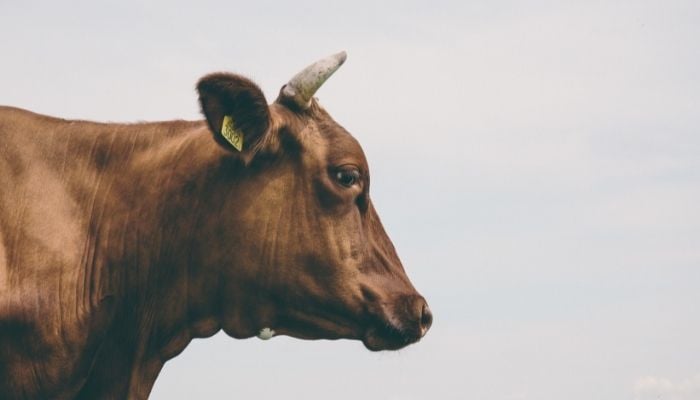Lumpy Skin infection in cows does not transmit to humans: Aga Khan Hospital
Aga Khan Hospital encourages people to consume only pasteurised milk and well-cooked meat
March 11, 2022

- AKUH confirms infection does not affect humans.
- Hospital encourages people to consume only pasteurised or well-boiled milk and well-cooked meat.
- AKUH shares key findings of each area of influence in a brief complemented by the comprehensive study.
KARACHI: Amidst fear in Sindh over the increasing number of cattle with lumpy skin disease, the Aga Khan University Hospital, the country's leading medical institution, declared on Thursday that the infection "does not cause human disease," reported Daily Dawn on Thursday.
However, there was no clinical research conducted to corroborate the declaration, the institute said in a statement.
The report citing the hospital study "Emerging Infection Alert: Lumpy Skin Disease," said that a thorough investigation showed that consuming flesh and milk of affected animals "does not transmit the illnesses to humans".
However, the hospital urged food safety experts to encourage people to consume only pasteurised or well-boiled milk, its byproducts, and well-cooked meat.
The AKUH shared key findings and the titles of each area of influence in a brief complemented by the comprehensive study and references.
While the reason for its dissemination was not disclosed, it was speculated to have been caused by insect bites and contact with secretions, lesions, and fomites.
The most pertinent section of the analysis for customers was titled "Threat to Humans," in which the institution addressed nearly every critical topic.
"Minimal to none," stated the study's first point.
It stated that human disease is a poorly documented subject. Consumption of meat or milk does not result in transmission of the virus to humans. However, it warned, food safety should be assured to prevent additional diseases, which included drinking only pasteurised or well-boiled milk and milk products, thoroughly boiling meat, and properly washing hands with soap and water after handling meat.
Only a few days ago, the Sindh livestock department provided a number indicating that up to 54 animals have died as a result of the Lumpy Skin Disease, which has afflicted over 20,000 animals across the province, including 15,100 in Karachi alone. The department discovered that the sickness had manifested in Punjab and Sindh animals, the English daily had reported.
In Karachi, 15,100 animals had the disease, while 3,781 were in Thatta, 149 were in Hyderabad, 656 were in Badin, 85 were in Jamshoro, and 121 were in Khairpur. There were also 64 Matiari animals, 35 Shaheed Benazirabad animals, 124 Sanghar animals, 36 Thana Bula Khan animals, four Qambar-Shahdadkot animals, and two each in Tand and Tand.
Following reports of an increasing number of illnesses among cattle, a huge number of citizens began avoiding cow and veal meat, resulting in an increase in demand for chicken meat. Prices of live birds and clean meat in the city have risen alarmingly to Rs330-336 per kg and Rs570 per kg, respectively. In the first week of February, live birds were priced between Rs190 and Rs210 per kg, while meat was priced between Rs350 and Rs380.











